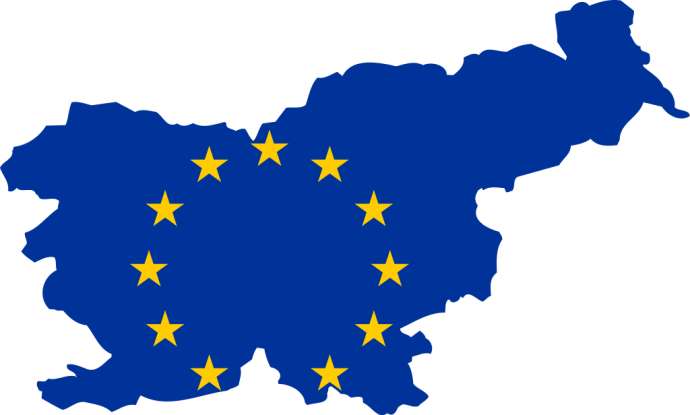STA, 3 December 2018 - Slovenia will take over the rotating EU presidency for the second time in the second half of 2021, having already held it in the first half of 2008. Preparations started less than two weeks ago with a several-month delay. The costs are estimated at EUR 75-80m. Finding qualified staff has been identified as the biggest challenge.
Slovenia's presidency of the Council of the EU in 2008 was praised as successful, but the stint in 2021 will be much different as the role of the country holding the presidency has changed significantly after the 2009 Lisbon Treaty, which introduced president of the European Council and the foreign policy chief.
The presidency of the Council has thus lost influence: the prime minister of the EU presiding country no longer chairs the European Council, and its foreign minister no longer represents the EU externally.
Almost all government departments will be involved
Preparations for Slovenia's presidency started with a delay of several months because of the general election and government formation, which Prime Minister Marjan Šarec confirmed in a recent interview with the STA.
The government launched the preparations on 22 November with the appointment of Igor Mally, a state secretary at the prime minister's office, as head of the project.
The project will be headed from the prime minister's office, but the preparations will involve virtually all government departments.
According to Mally, a rough staffing plan was made at the beginning of the year and the experiences of the countries holding the presidency have already been reviewed.
350 full-time jobs will be created, starting next year
In 2008, the project of EU presidency cost EUR 62.3m. Considering inflation, and the costs of other countries of a similar size that recently held the presidency such as Estonia, Slovakia and Bulgaria, the costs are estimated at EUR 75-80m, Mally said, adding that a more reliable estimate would be made at the end of February.
Most of the funds will go for the 350 full-time jobs. Officials in Brussels and Ljubljana agree that finding the right staff and providing them with proper training will be a major challenge.
Ministries will start hiring at the beginning of next year, but most of the job vacancies are expected to be filled in 2019 and 2020.
Compared to 2008, ministries now reportedly have much less staff with required skills. Ten years ago, a pool of staff experienced in European affairs was available as part of the Government European Affairs Service.
After the EU presidency, many of these people got a job at EU institutions and the service was merged into the Foreign Ministry.
Mally said that those who were actively involved in the 2008 presidency would train the new staff.
A packed schedule over the six-month EU presidency
During the six-month spell, the country will preside over around 30 ministerial sessions and more than 2,000 various working meetings and host around 15 ministerials at home.
Since most of the meetings will be held in Brussels, the Slovenian permanent representation there will need to be expanded - both in terms of staff and rooms.
Mally expects 119 officials to be sent to Brussels, which means the number of staff at the representation office will almost triple.
The office will thus have to at least temporarily move to new premises and a decision on this is expected to be made shortly, according to Mally.
Most of the meetings in Slovenia will be held at the Brdo Conference Centre, which Mally believes is the most suitable venue from the financial, logistic and security points of view.
The priorities of Slovenia's EU presidency will be determined in cooperation with Germany and Portugal to ensure continuity of the agenda. The trio also cooperated ten years ago.
An obligation and an opportunity
Among the possible topics that could be Slovenia's priorities Foreign Minister Miro Cerar recently mentioned the issue of integration of the Western Balkans, security in the face of migration, the strengthening of the welfare state, and modernisation and digitalisation.
Slovenia's Ambassador to the EU Janez Lenarčič, who was European Affairs Ministry state secretary during Slovenia's first stint at the helm of the EU, believes the presidency is both an obligation and an opportunity for the country.
Mally said each presidency wanted to leave a mark. "It's a matter of ambition. Either you want to carry out the presidency merely as a routine or you want to take advantage of the opportunity to make a difference, which is what Slovenia is aiming for."







